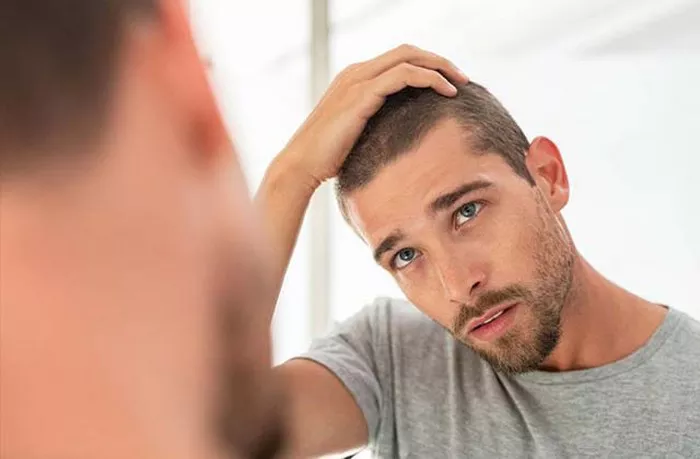In the pursuit of luscious locks, many individuals turn to various remedies to enhance hair growth. Among these remedies, essential oils have gained significant attention for their potential to stimulate hair growth and improve overall hair health. Essential oils are concentrated plant extracts known for their therapeutic properties, including promoting circulation, balancing scalp oils, and nourishing hair follicles. In this comprehensive guide, we delve into the world of essential oils for hair growth, exploring their benefits, application methods, scientific evidence, product recommendations, and safety precautions.
Detailed Profiles of Each Oil
1. Lavender Oil: Lavender oil is renowned for its soothing aroma and therapeutic properties. When applied to the scalp, it can improve blood circulation, promote hair growth, and help alleviate stress, which is known to contribute to hair loss.
2. Peppermint Oil: Peppermint oil contains menthol, which provides a refreshing sensation and stimulates blood flow to the scalp. Its cooling effect can help soothe inflammation, reduce dandruff, and promote hair growth.
3. Rosemary Oil: Rosemary oil is rich in antioxidants and has antimicrobial properties, making it an excellent choice for promoting scalp health. It can improve circulation, strengthen hair follicles, and may even prevent premature graying.
4. Cedarwood Oil: Cedarwood oil has a woody aroma and is known for its ability to balance sebum production on the scalp. By reducing excess oil and improving circulation, cedarwood oil can support healthy hair growth and prevent hair loss.
Application Methods
To harness the full potential of essential oils for hair growth, proper application methods are crucial. Here’s a step-by-step guide:
1. Dilution: Essential oils are highly concentrated and should always be diluted with a carrier oil before application. Popular carrier oils include coconut oil, jojoba oil, and almond oil. Mix 2-3 drops of essential oil with one tablespoon of carrier oil.
2. Massage: Gently massage the diluted oil mixture into the scalp using circular motions. This helps stimulate blood flow to the hair follicles and ensures even distribution of the oils.
3. Leave-in Treatment: Leave the oil mixture on the scalp for at least 30 minutes, allowing the essential oils to penetrate the hair follicles and nourish the scalp.
4. Shampoo and Rinse: After the designated time, shampoo and rinse your hair thoroughly to remove any excess oil. Use a gentle, sulfate-free shampoo to preserve the natural oils of your hair and scalp.
Evidence of Effectiveness
Numerous studies have explored the efficacy of essential oils for hair growth, providing compelling evidence of their benefits. For example:
- A study published in the “Journal of Cosmetic Dermatology” found that a combination of lavender and peppermint essential oils significantly increased hair growth in mice compared to control groups.
- Research published in the “International Journal of Biomedical Science” demonstrated that rosemary oil can promote hair growth by stimulating the proliferation of hair follicle cells.
- A study published in “Evidence-Based Complementary and Alternative Medicine” concluded that cedarwood oil, when used in combination with other essential oils, showed significant improvement in hair growth among participants with alopecia areata.
Product Suggestions
When selecting products containing essential oils for hair growth, it’s essential to choose high-quality formulations that are free from harmful additives and synthetic fragrances. Here are some recommended products:
1. Lavender Mint Scalp Care Shampoo: This shampoo combines the benefits of lavender and peppermint essential oils to promote scalp health and stimulate hair growth.
2. Rosemary Hair Growth Serum: Formulated with pure rosemary oil and other botanical extracts, this serum nourishes the scalp and encourages healthy hair growth.
3. Cedarwood & Jojoba Hair Oil: Infused with cedarwood oil and jojoba oil, this hair oil moisturizes the scalp, balances oil production, and supports hair growth.
Precautions and Safety
While essential oils offer numerous benefits for hair growth, it’s essential to use them safely to avoid adverse reactions. Here are some precautions to keep in mind:
1. Patch Test: Before applying any essential oil to the scalp, perform a patch test on a small area of skin to check for any allergic reactions or irritation.
2. Dilution Ratio: Always dilute essential oils with a carrier oil to prevent skin irritation and sensitivity. Follow recommended dilution ratios and avoid using undiluted essential oils directly on the scalp.
3. Avoid Contact with Eyes: Take care to avoid getting essential oils in your eyes, as they can cause irritation and discomfort. If contact occurs, rinse thoroughly with water.
4. Consultation with a Professional: If you have any underlying medical conditions or concerns about using essential oils for hair growth, consult a healthcare professional or a qualified aroma therapist for personalized advice.
In conclusion, essential oils offer a natural and effective solution for promoting hair growth and improving overall hair health. By incorporating oils such as lavender, peppermint, rosemary, and cedarwood into your hair care routine, you can nourish your scalp, stimulate hair follicles, and achieve the vibrant, healthy hair you desire. Remember to use essential oils safely and responsibly, and enjoy the transformative benefits they have to offer.


